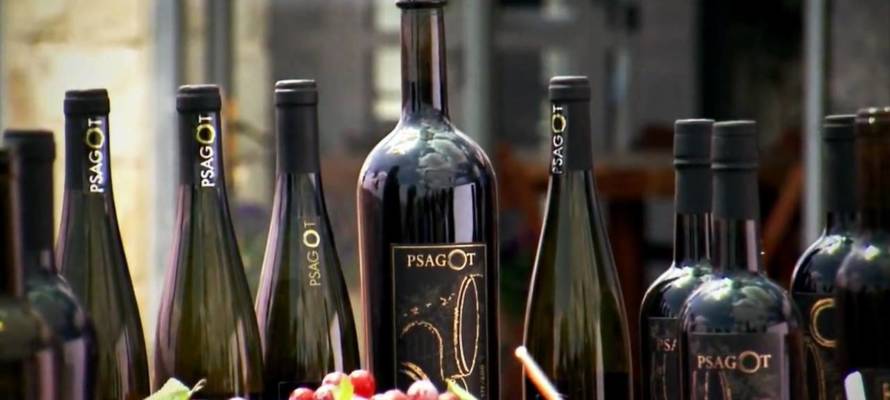The role of wine and alcohol in Judaism is a fascinating subject. While a central feature of Shabbat, holidays and all lifecyle events, there are obvious drawbacks.
By Rabbi Ari Enkin, Rabbinic Director, United with Israel
This week’s Torah portion is “Noah” (Genesis 6:9–11:32) and in it we read the famous story of Noah and the flood.
The world God created had become corrupt and filled with all types of evil, particularly theft, idolatry, and incest – both man and beast. Noah and his family were the only ones who remained righteous and pure. As a result, as we know, God brought a flood that wiped out the world and everything in it.
Although we can talk about the story of the flood, the construction of the ark, the animals who were invited along for the ride, and so much more, I want to focus here on what took place after the flood was over, when the water receded and the passengers on the ark disembarked.
One of the first things Noah did upon leaving the ark was to plant a vineyard and make wine. He then drank, became overly intoxicated and was eventually found by his sons, lying naked. Unfortunately, Noah’s son, Ham, and Ham’s son, Canaan – the first ones to find Noah naked – committed a terrible sin. According to some sources, they sodomized him, while according to others, they sterilized him. Noah’s other sons, Shem and Yafet, covered their father respectfully. Ham and Canaan were punished for their actions while Shem and Yafet were rewarded for theirs.
Let us examine the episode of the vineyard:
“And Noah began to work the soil, and he planted a vineyard. And he drank of the wine and became drunk and he uncovered himself within his tent. And Ham, the father of Canaan, saw his father’s nakedness and he told his two brothers outside. And Shem and Japheth took the garment… and they covered their father’s nakedness. And Noah awoke from his wine, and he knew what his grandson had done to him. And he said, ‘Cursed be Canaan; he shall be a slave among slaves.’ And he said, ‘Blessed be the L‑rd, the G‑d of Shem, and may Canaan be a slave to them. May G‑d expand Japheth, and may He dwell in the tents of Shem, and may Canaan be a slave to them.'”
The question is asked: How could a holy man such as Noah lose himself in this way to get so drunk?
One of the answers given is that Noah once saw a goat chewing on some grapes and shortly thereafter the goat became happy and cheerful. As such, after having quite a rough year with the flood and ark and all that, perhaps he got drunk as an escape and mood uplifter. Another interpretation has it that he thought that getting high would bring him closer to God. Well, it got him high but only damaged his relationship with the One on High. There are other answers as well.
The role of wine and alcohol in Judaism is a fascinating subject. On the one hand, wine and alcohol are a central feature of Shabbat and holidays, all lifecyle events, and let us not forget the four cups of wine we drink at the Passover Seder. Every sacrifice offered in the Holy Temple was accompanied by a wine libation. Wine is so special in Judaism that it is one of the few foods that has its own unique blessing.
On the other hand, it was wine and alcohol that brought much tragedy and misery to the world. According to some sources, the forbidden fruit of Eden was grapes turned into wine…a story that did not end well. Noah’s downfall, as we just saw, was through wine. Wine led Lot to commit incest with his daughters. Nadav and Avihu, the sons of Aaron, were put to death for entering the sanctuary while drunk. And one of the reasons given as to why the ten tribes of Israel were exiled from the Land of Israel was that it was due to their excessive alcohol consumption. The list goes on and on.
A Blessing or a Curse?
So which is it? Are wine and alcohol a blessing or a curse?
The answer is that it is a little bit of both. It has tremendous potential and is a tremendous blessing when utilized properly, but it’s a disaster if misused and abused. Wine brings us joy because it relaxes our inhibitions and weakens the body’s natural defenses. This is a good thing in moderation. It can lead to increased sensitivity, spirituality, and brotherhood. But getting drunk in order to escape reality, as Noah did, speaks for itself.
An extension of this discussion is the role of pleasure in Judaism. While many religions praise ascetism and withdrawal from pleasures, Judaism encourages us to enjoy the pleasures in life. While most religions try to separate the holy from the mundane, Judaism encourages us to combine them. The Kabbala teaches that we will be held accountable for permissible pleasures that we withheld from ourselves.
Do you enjoy alcohol? Enjoy in moderation. Enjoy on Shabbat. Enjoy on special occasions. Sexual relations? Highly encouraged…within marriage of course. Food? Eat healthy and save the feasts for Shabbat and holidays. All these activities, and many more, are actually considered holy when done in moderation and with appreciation to He who gives pleasure to mankind.
There is no separation of holy and mundane in Judaism. Anything we use, enjoy, consume, or engage in while in the service of God is automatically elevated to the level of holiness.
For more insights by Rabbi Enkin on this week’s Torah portion, click on the links below:
https://unitedwithisrael.org/watch-noah-teaches-us-how-to-walk-with-god/
https://unitedwithisrael.org/watch-lesson-on-sensitivity-and-appreciation-from-noahs-ark/
https://unitedwithisrael.org/watch-israels-wildlife-so-diverse-noah-would-be-proud/
https://unitedwithisrael.org/living-torah-why-was-noah-childless-for-hundreds-of-years/
https://unitedwithisrael.org/what-was-noahs-greatest-legacy/
